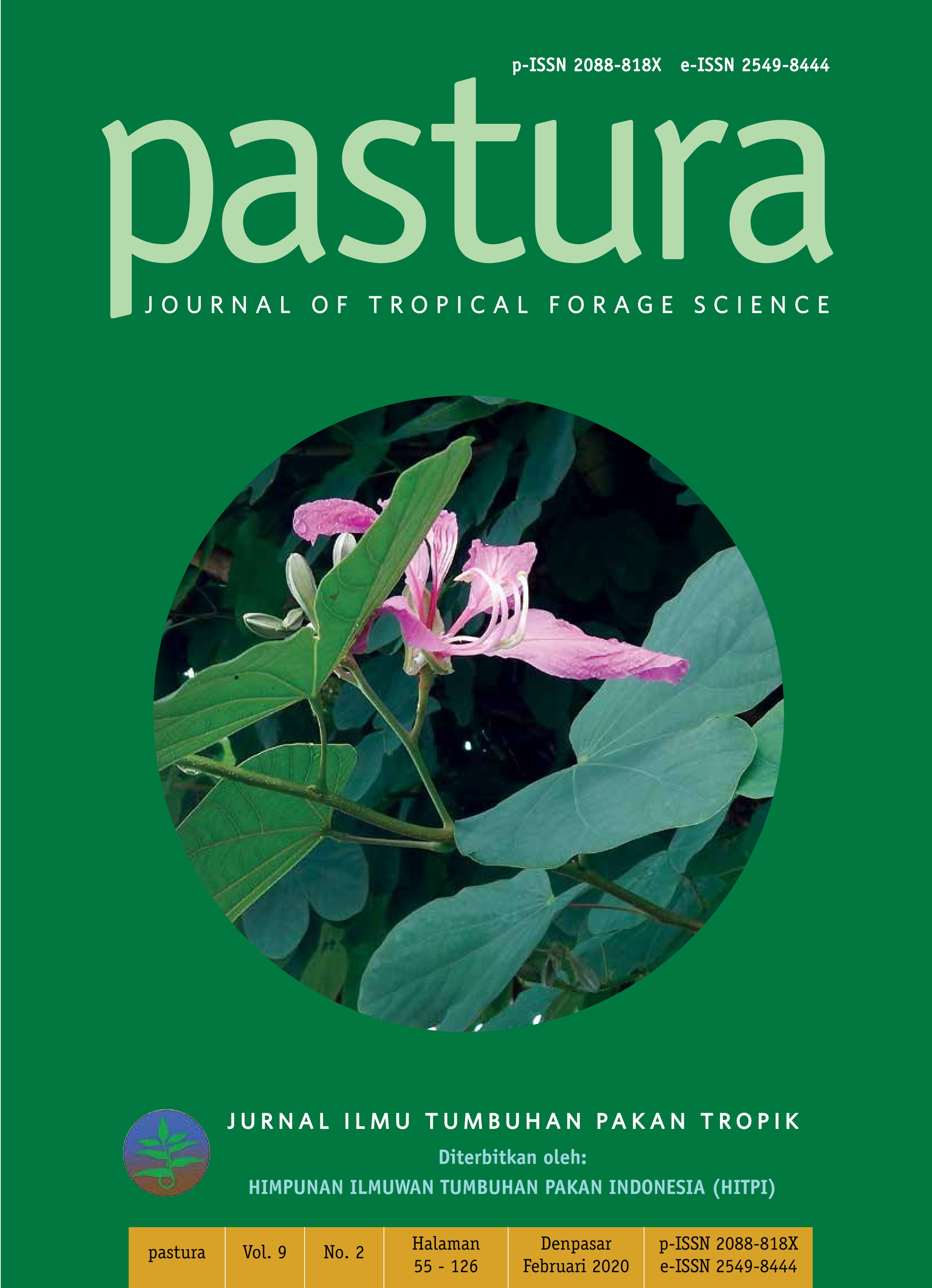STRATEGI IMPLEMENTASI ANIMAL WELFARE DALAM PENYEDIAAN PAKAN SAPI BALI
STRATEGI IMPLEMENTASI ANIMAL WELFARE DALAM PENYEDIAAN PAKAN SAPI BALI
Abstract
Sesuai amanat sustainable development goals (SDG’s) usaha peternakan wajib mengarusutamakan kaedah-kaedah pembangunan berkelanjutan yang ramah lingkungan. Peningkatan permintaan akan daging sapi harus diimbangi dengan peningkatan produktivitas sapi untuk memenuhi ketersediaan populasi dan kualitas daging sapi. Kualitas ternak sapi yang dihasilkan sangat tergantung kepada ketersediaan dan kualitas hijauan yang dimakan ternak. Ketersediaan berbagai limbah pertanian dan industri mendorong upaya pengolahan limbah menjadi pakan ternak ruminansia. Limbah yang diolah langsung diberikan kepada ternak ruminansia sebagai pakan alternatif. Limbah biasanya dapat megandung bahan berbahaya, zat anti nutrisi, dan memerlukan biaya yang lebih tinggi untuk mengolahnya. Untuk mengakomodasi kearifan budaya, memelihara harmonisasi spiritualitas bagi petani/peternak, dan menerapkan prinsip-prinsip animal welfare, selayaknya ternak ruminansia seperti sapi bali mendapatkan makanan yang baik yang berasal dari tanaman pakan ternak dengan kualitas yang baik. Dengan demikian limbah harus diolah menjadi pupuk yang berkualitas tinggi sehingga dapat menyediakan hijauan berkualitas bagi ternak sapi bali. Output yang berkualitas menuntut input yang berkualitas juga.
Kata kunci: limbah, animal welfare, hijauan berkualitas





